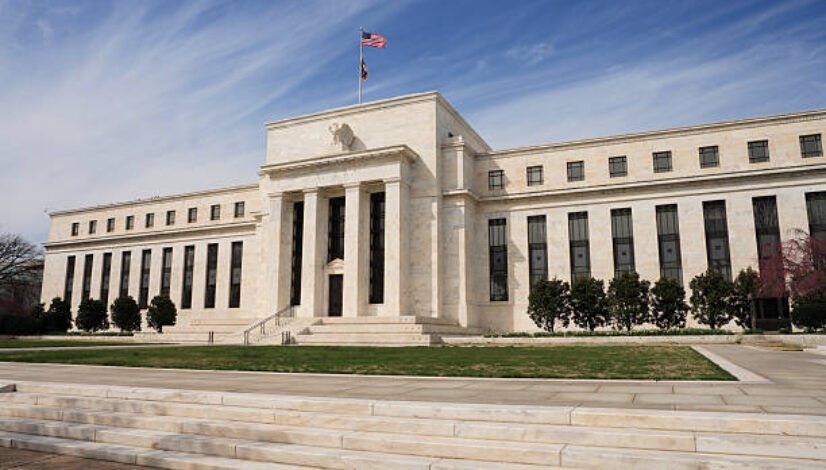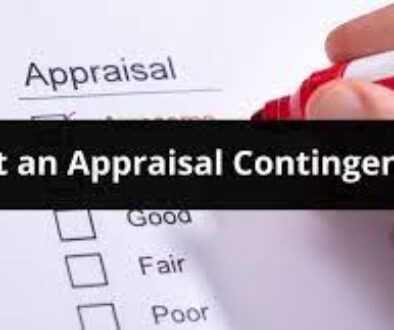Federal Reserve
Federal Reserve
The federal funds rate helps the U.S. Federal Reserve influence interest rates and borrowing. It can also be called the fed funds rate, federal interest rate or federal reserve rate. The federal funds rate may also impact the interest rate that you’re charged on your home mortgage or personal loan.
Understanding how it works can help provide you with a better sense of how the economics behind the interest rates that you pay operate. You can also learn how they can affect the cost of buying a home.
What Is The Federal Reserve?
Established in 1913, the Federal Reserve (also called “The Fed”) is the central bank of the United States. The Federal Reserve Act established a few primary goals for the bank, and these are still its purpose today.
The mission of the Federal Reserve is to moderate interest rates over time. Its intention is to create an environment that leads to as many people being employed as possible while helping stabilise prices for goods and services.
See What You Qualify For
What Is The Federal Funds Rate?
The federal funds rate is defined as the suggested interest at which banks can lend money to each other. The federal funds rate is considered a targeted interest rate because it’s set by the Federal Open Market Committee (FOMC).
The Fed And The Federal Open Market Committee (FOMC)
The Federal Open Market Committee is the chief decision-making board within the Federal Reserve. It sets monetary policy aimed at reaching the Fed’s goals. The FOMC meets eight times each year to set the federal funds rate. Its decisions at these meetings have a big impact on many areas of the economy, and mortgage rates are no exception.
Why The FOMC Adjusts The Federal Funds Rate
The FOMC uses the federal funds rate to control the money supply in the system. It may do this to help keep inflation in check when commerce begins to overheat or stimulate the economy when it slows down.
In practice, raising the federal funds rate makes it more expensive for individuals or organisations to borrow money. Lowering it makes it easier for them to engage in borrowing.
Why The Federal Funds Rate Influences Other Rates
If the federal funds rate is raised, borrowing money becomes more expensive for lenders. Money becomes less available because lenders either have to lend at a loss or raise their own short-term interest rates to make a profit on their loans.
If the rate is decreased, money becomes more readily available, and short-term interest rates sink. This can help stimulate economic activity.
Changes to the federal funds rate can impact mortgage and loan interest rates, along with interest rates on credit cards, savings accounts and certificates of deposit (CDs). In short, various loans and investments can be both directly and indirectly influenced by changes to the fed funds rate.
Federal Funds Rate Vs. Federal Discount Rate
While banks can loan each other money at the federal funds rate, they can also borrow from the Fed. However, the Fed sets a specific borrowing rate called the discount rate to discourage banks from borrowing money too heavily from them.
As a rule, the discount rate tends to be higher than the federal funds rate, making it more expensive to borrow from the Fed than from other banks. This helps steer banks toward borrowing from other lending institutions and encourage more overall activity in the system.
However, the Federal Reserve may temporarily lower its discount rate to certain banks on an emergency basis if there is a concern that a bank may need emergency credit to cover a shortfall or to keep the bank from failing altogether.
How Is The Federal Funds Rate Determined?
The Federal Reserve may choose to raise or lower the federal funds rate based on several factors, including:
- Economic forecasts
- Indicators of inflation
- A financial crisis or other major event like a disaster or pandemic that impacts the economy
When it desires to stimulate the economy, it will lower the short-term funds borrowing rate. This typically prompts banks to lower the interest rates that they charge on loans to consumers for homes, cars and other purchases. When it wants to counter the effects of inflation, the Fed will raise rates with an eye toward keeping inflation from spiralling.
In short, the FOMC sets the federal funds rate, and uses it as a tool to keep its finger on the scale of inflation and ensure that the economy is well-balanced.
How Does The Federal Funds Rate Affect Mortgage Rates?
The Fed is more interested in affecting short-term spending than affecting long-term investments like mortgages. In fact, mortgages tend to be indexed to longer term indicators like the 10-year Treasury bonds rather than the federal funds rate.
But as a borrower, you may find that the Fed’s rate adjustments do have an impact when you go to a lender for a mortgage.
Why? When lenders need to pay more to borrow money, they’re likely going to charge higher interest rates.
At the same time, the mortgage rate that your lender charges you will still be affected by factors like your income, your credit history, your credit score, the size of your down payment and the type of mortgage you’re applying for.
Current Federal Funds Rate Vs. Mortgage Rates
As inflation became an issue partially due to the COVID-19 pandemic, the Federal Reserve implemented a series of rate increases in 2022 and 2023 to help bring prices under control.
On March 17, 2022, the federal funds rate was between 0.25% – 0.50% and on March 2, 2023, the rate was between 4.75% – 5.00%. By comparison the average mortgage rate for a 30-year fixed-rate mortgage in March of 2022 was 4.17% and in March of 2023 it was 6.54%
So how does the increase affect you? If you were to borrow $300,000 with a 30-year fixed rate mortgage in March 2022, your monthly payment would be about $1,462. The same loan in March 2023 would have a monthly payment of approximately $1,904.
Because the higher cost to borrow makes it more expensive to buy a home, fewer buyers may try to buy a home. That reduces demand, which in turn may help bring prices down.
Federal Funds Rate and Mortgages FAQ
More questions about the Fed and mortgages? We have answers.
If I already have a mortgage, will a fed fund rate increase affect my payments?
If you got a fixed rate mortgage, your monthly principal and interest payments will stay the same for the life of your mortgage. However, if you have an adjustable rate mortgage(ARM) or a home equity line of credit (HELOC), your interest rate and payments will likely change when the rate is adjusted. Rate adjustments usually occur annually or every 6 months, depending on the terms of your ARM or HELOC.
Is the federal funds rate likely to go down soon?
While the Federal Reserve may lower interest rates in response to the economy, rates aren’t likely to go down drastically any time soon. The fact is that the Great Recession and COVID-19 kept interest rates at record lows from 2007 – 2021. The recent rate increases have simply brought interest rates back in line with historic averages.
How does the Federal funds rate affect mortgage backed securities?
When interest rates are low, mortgage backed securities are seen as safe investments because they’re less volatile than stocks, but provide a higher rate of return than U.S. Treasury bonds. However, when interest rates go up, the value of mortgage backed securities goes down. Usually, they go down more than they would have gone up if rates had fallen.




